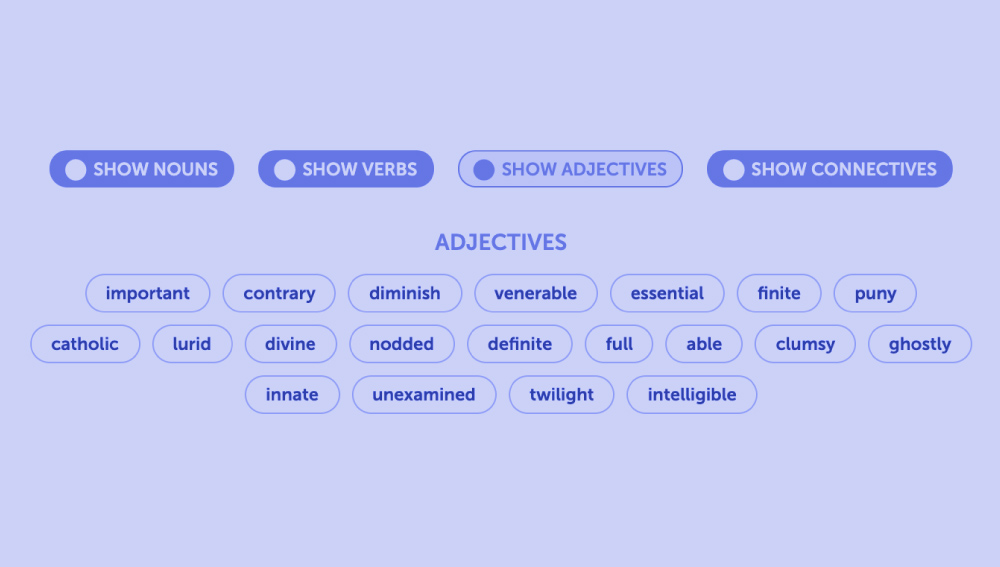One of the challenges writers face is specialised vocabulary, whether across genres and text types, or within specific styles.
For instance, if you want to write a 19th Century Gothic story, or even a pastiche, it’s a lot easier if you have a rich pool of gothic-adjacent words to draw from.
Obviously the ideal way to build vocabulary is through reading, but in Writelike we can support the process through an experimental vocabulary inspiration feature.
This feature is half-manual, half-automated. We take a handful of texts that meet some kind of genre criteria—for instance, 19th Century Gothic fiction—and we feed them into a tokenizing algorithm that separates and classifies all the words.
We keep the nouns, verbs, adjectives and connectives, toss out as many unsavoury or erroneous words as we can detect, and then create a specialised vocab pack which we can add to student response fields.
When students come across a field that has vocabulary support, they can click to get a random selection of words from vocab pack we’ve specified. Every word clicks through to Thesaurus.com so students can find more alternatives or explore the definition.
Students can click to refresh the displayed words if they want new ideas.
As you can see above, the algorithm is not doing a great job of sorting the words at the moment, which we are trying to improve.
We’ve only added this feature to a few lessons so far, but we will update as we go, and add it to new lessons from now on, where appropriate. For general lessons, it’s not clear if there’s a need for this—let us know if you want to see it used more heavily, and if your students find it helpful.



